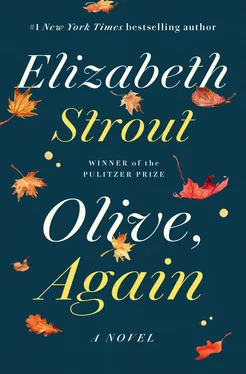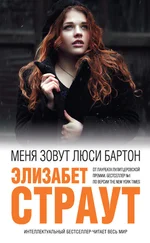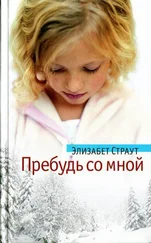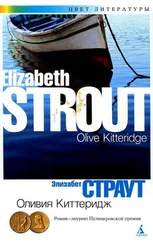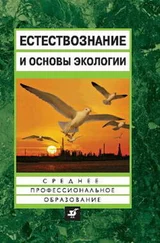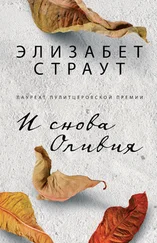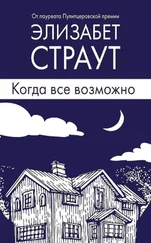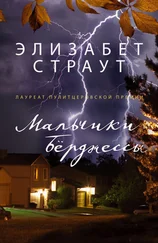Olive shifted slightly in her seat, wearing her poopie panties beneath her black trousers and flowery top. She kept thinking: Barbara Paznik was alive, and now she is dead. And then, her mind twirling around, Olive suddenly remembered catching grasshoppers as a child, putting them in a jar with the top on, and her father had said, “Let them out, Ollie, they’ll die.”
She thought then about Henry, the kindness in his eyes as a young man, and the kindness still there when he was blind from his stroke, the pleasant expression on his face as he sat in that wheelchair, staring. She thought about Jack, his sly smile, and she thought about Christopher. She had been lucky, she supposed. She had been loved by two men, and that had been a lucky thing; without luck, why would they have loved her? But they had. And her son seemed to have come around.
It was herself, she realized, that did not please her. She moved slightly in her chair.
But it was too late to be thinking that—
—
And so she sat, watching the sky, the clouds high up there, and she looked down then at the roses, which were pretty amazing after just one year. She leaned forward and peered at the rosebush—why, there was another bud coming right behind that bloom! Boy, did that make her happy, the sight of that new fresh rosebud. And then she sat back and thought about her death, and the sense of wonder and trepidation returned to her.
It would come.
“Yup, yup,” she said. And for many more minutes she sat there, not even really knowing what she thought.
Finally Olive stood up slowly, leaning on her cane, and moved to her table. She sat down in her chair, put her glasses on, and put a new sheet of paper into the typewriter. Leaning forward, poking at the keys, she typed one sentence. Then she typed one more. She pulled the sheet of paper out and placed it carefully on top of her pile of memories; the words she had just written reverberated in her head.
I do not have a clue who I have been. Truthfully, I do not understand a thing.
Olive stuck her cane to the ground and hoisted herself up. It was time to go get Isabelle for supper.
I would like to thank the following people for their help with this book: Jim Tierney, Kathy Chamberlain, and Jeannie Crocker, my childhood friend who reassured me about the cultural differences between New York City and Maine; Ellen Crosby, my college roommate, whose support through the years has been significant and meaningful, and who has provided for my readers the name of the town of Crosby; Susan Kamil, Molly Friedrich, Lucy Carson, Dr. Harvey Goldberg, and—always—Benjamin Dreyer.
ELIZABETH STROUT is the #1 New York Times bestselling author of Olive Kitteridge, winner of the Pulitzer Prize; Anything Is Possible, winner of the Story Prize; My Name Is Lucy Barton, longlisted for the Man Booker Prize; The Burgess Boys, named one of the best books of the year by The Washington Post and NPR; Abide with Me, a national bestseller; and Amy and Isabelle, winner of the Los Angeles Times Art Seidenbaum Award for First Fiction and the Chicago Tribune Heartland Prize. She has also been a finalist for the National Book Critics Circle Award, the PEN/Faulkner Award for Fiction, the International Dublin Literary Award, and the Orange Prize. Her short stories have been published in a number of magazines, including The New Yorker . Elizabeth Strout lives in New York City.
elizabethstrout.com
Facebook.com/elizabethstroutfans
Twitter: @LizStrout
To inquire about booking Elizabeth Strout for a speaking engagement, please contact the Penguin Random House Speakers Bureau at speakers@penguinrandomhouse.com.
By Elizabeth Strout
Olive, Again
Anything Is Possible
My Name Is Lucy Barton
The Burgess Boys
Olive Kitteridge
Abide with Me
Amy and Isabelle
